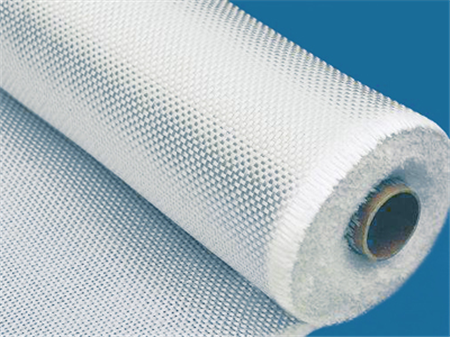Selection and application of glass fiber filter material for dust removal in cement industry
Apr 27, 2023

The cement production process produces a large amount of dust with high temperature, high humidity and corrosive gas, and the dust concentration is high and the temperature fluctuates widely, only the glass fiber filter material with high temperature resistance, corrosion resistance and anti-condensation can meet the needs of cement industry dust removal.
1.1 The material of glass fiber filter material
Glass fibers can be divided into two categories in terms of their alkali metal oxide content in the glass composition, alkali-free glass fibers (E - fiberglass) and medium alkali glass fibers (C - fiberglass). The difference in alkali metal oxide content affects the production process of glass fibers and determines the performance of glass fibers and their products. Alkali-free glass fibers can be produced with a single fiber diameter of 8 to 9μ. The difference in fiber diameter, woven into the same thickness of glass fiber cloth, the strength, wear resistance, folding and other properties vary greatly.
Different glass fiber material will affect its use temperature, alkali-free glass fiber filter material can be used for a long time at a temperature of 280 ℃, instantaneous (within 1 hour) temperature resistance of up to 350 ℃, while the use of medium alkali glass fiber filter material temperature is only 260 ℃, instantaneous temperature resistance of 300 ℃ or less.
1.2 The fabric structure of glass fiber filter material
Glass fiber filter material permeability, filtration efficiency are closely related to its fabric structure, fabric structure is divided into three categories: twill, satin, weft two heavy.
In the dusty flue gas, the same fabric structure, the permeability of glass fiber expanded yarn filter material is higher than that of continuous glass fiber filter material, and the permeability of glass fiber needle-punched felt material is the highest.
1.3 The thickness of glass fiber filter material
Glass fiber filter material thickness (sometimes measured by the mass per unit area) will determine the fracture strength of this filter material and the filtration air speed used, and will also determine the radial fracture strength of alkali-free continuous glass fiber filter material and alkali-free glass fiber expanded yarn filter material.
2. Surface treatment of glass fiber filtration materials
A variety of glass fiber vegetal cloth or vegetal felt only after surface treatment can really become glass fiber filter material, in order to be suitable for use in different working conditions, to achieve the purpose of smoke and dust removal.
Glass fiber expanded yarn filter bag has good dust removal effect
Different dust points generated by the flue gas dust, its temperature, humidity, dust concentration, the chemical composition of the dust, particle size distribution, the composition and content of harmful gases in the flue gas are not only the same. In the cement industry, the characteristics of flue gas dust from rotary kilns, vertical kilns, dryers, coal mills, clinker mills, raw material mills, grate coolers and other dust raising points are different. Different regions and manufacturers use different production processes, raw material ratios, and coal combustion are not exactly the same, and the characteristics of the resulting flue gas dust are not the same. It is necessary to use the glass fiber research and design institute treated by special surface treatment agent after decades of research and development, research and development for the cement industry about the dust point smoke removal with surface treatment formula.

The production process, raw material ratio and calcination method of cement kilns vary greatly across the country, and the characteristics of flue gas dust also vary greatly, so kiln dust removal is a major difficulty in the cement industry. The glass fiber filter materials CWF-300/Psi and CWF-500/Psi used in vertical kiln glass fiber bag dust collector have been used in hundreds of vertical kiln production lines in the country to eliminate smoke and dust, with an average service life of more than 12 months and dust removal rate of more than 99%.
3.4 Use in the dryer
There are many kinds of materials to be dried in cement plant dryers, and the corresponding soot characteristics are different. The glass fiber filter media CWF-300/PCA treated with anti-condensation formula, used with LFEF (III) type dryer glass fiber bag dust collector, has a service life of more than two years. Table 7 lists the results of using CWF-300/FCA in different materials dryer dust removal.